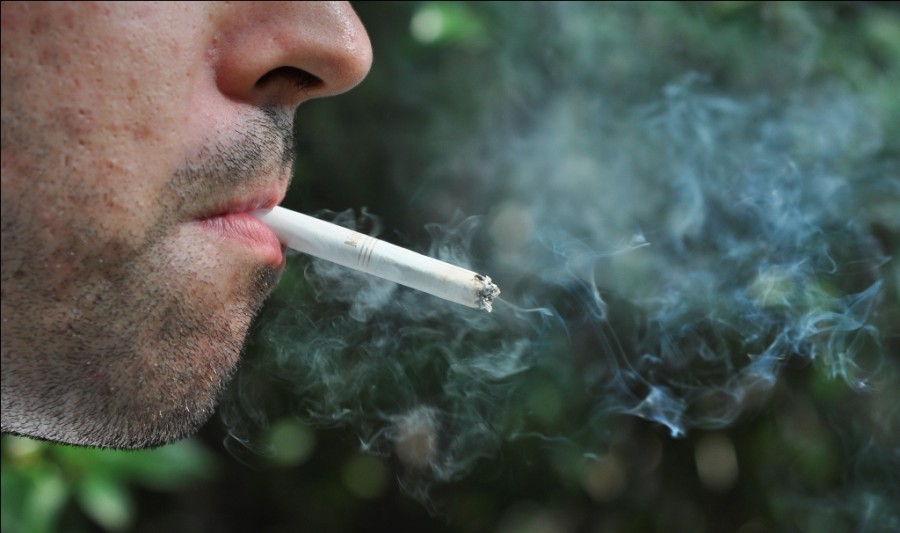Looking back one year later at the effectiveness of FMU’s smoking policy, it appears that although some students are still transitioning, the university is staying competitive with other campuses around the state and the nation by providing a healthy atmosphere for its students, staff and faculty.
“The smoking policy is not about restriction or denial,” Teresa Ramey, Vice President and Dean of Students at FMU, said. “It’s about health. We do not pretend that this is an easy policy to enforce. Smoking on campus is a community issue.”
The process of Francis Marion becoming completely smoke-free was accomplished in stages over several years, with smoking first being restricted to outdoor spaces, then to designated areas only and finally outlawed completely on all campus grounds and property. FMU’s policy is consistent with trends at colleges and universities throughout the state of South Carolina and around the nation in the last two decades.
According to a July 2010 poll conducted by the American Nonsmokers’ Rights Foundation, at least 420 campuses around the nation have become completely tobacco free. These stricter policies do not allow for any form of tobacco, including chewing tobacco, to be used on campus property.
The number of campuses who currently enforce partial tobacco-free policies numbers in the thousands. Partial tobacco-free policies, such as the one currently in place at Francis Marion, may limit some tobacco products but not others or may restrict smoking to areas that are at least 25 feet away from a building. According to FMU officials, Francis Marion plans to eventually move towards a completely tobacco-free culture.
Some examples of universities and colleges who have adapted completely tobacco-free campuses in South Carolina include the University of South Carolina, Clemson, and Lander. Many other schools, such as Furman and the College of Charleston enforce partial smoke-free policies.
Just like Francis Marion, each of these campuses offer free or low-cost smoking cessation information for their students, staff and faculty. Some even provide step-by-step programs and cessation products.
“Students who need assistance in receiving information about smoking cessation can contact our Student Health Services Office,” Ramey said.
One issue with making a change in culture, such as creating a completely smoke-free campus, is that it is difficult to enforce the policy 100 percent since campus police cannot be everywhere at once. Although Francis Marion has seen a drastic reduction in the number of people caught smoking on campus, there are still visible signs of policy abuse. These signs range from cigarette butts littering the ground in some areas to some students standing openly in high-traffic areas taking a smoke break between classes.
“It’s impossible to be present at each location where there may be a violation of the policy,” Ramey said. “It is important to alert our office about problem areas so that we may address the issue in a positive manner.”
When interviewed about the effectiveness of the smoke-free campus policy many students, both smokers and non-smokers, voiced their desire to once again see designated smoking areas on campus. One such student was Mary Fite, a sophomore majoring in biology, who feels that a designated smoking area would be a way to cut back on smokers standing in high traffic areas when they feel they cannot wait until they are off campus to smoke.
“I think there should be a designated smoking area,” Fite said. “People who are addicted to smoking are going to smoke no matter what, so it would be nice if there were a designated area so that people who don’t smoke don’t have to walk through it.”
Fite’s comments are typical of those heard by a large number of students around campus, but the use of designated smoking areas is one topic where FMU administrators, who have a longer view of the history of the policy than most current students, differ in their opinions.
According to university officials, it does not make sense to move backward in a policy and create something, such as designated smoking areas, that were not effective the first time.
“There were designated areas located on campus, and yet there were violations involving smoking outside of those designated smoking areas,” Ramey said. “When the designated areas were established the entire campus was notified that the campus would eventually go smoke free. Our policy is not unique to Francis Marion.”
Another issue regarding the policy that seems to cause confusion among students are the disciplinary procedure involved if caught violating the smoke-free policy. According to Ramey, any cultural change will often bring about rumors and misunderstandings. Ramey said she strongly encourages any student who is unsure of the origin or rationale for a policy to contact her office with their questions.
“We know that the campus is still adjusting to the policy, so students have received warning notices from our office when we are made aware of the incident, and second time violators will receive a fine,” Ramey said. “Any deviations [in the policy] have typically involved combination violations, meaning that in addition to smoking, there was another violation in progress.”
A period of transition is to be expected with any new law or ruling that goes into effect. As one administrator explained the situation, there are laws on campus for speeding, littering and any number of other important issues, but that does not mean that everyone will adhere to those laws 100 percent of the time.
